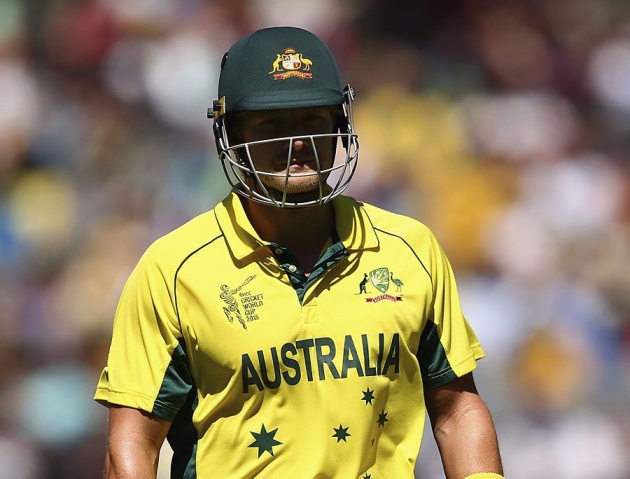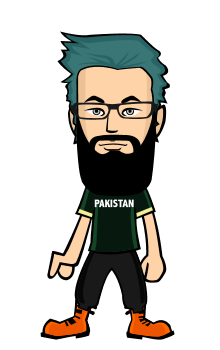Watson thought his World Cup was over
When informed by Rod Marsh that he would not be selected to face Afghanistan, Shane Watsonthought his World Cup was over. If he did not allow his mind to race forward to what the implications were for his Test career, he certainly wondered whether much of the work he had done over the preceding six months had been for nothing.

Watson went through all the well-worn tropes of the dumped player: the supportive hand on the shoulder from Shane Warne, the drinks duty, the impromptu press conference through an airport terminal. He handled it all with considerable grace, and was unexpectedly rewarded for it by being granted an instant recall for the Sri Lanka match at the SCG, when a dry pitch diverted selectors from their preference for Mitchell Marsh.
A major partnership with Glenn Maxwell ensued, and Watson now appears to have reverted to being the selectors' first choice for the remainder of the tournament, albeit in a new role in the middle order with Steven Smith at No.3. This all sits well with Watson, given how he had spent the better part of 72 hours pondering what life would be like outside the Australian World Cup team.
"I wasn't expecting to play, after being dropped for the Afghanistan game, for the rest of the tournament," Watson said in Adelaide. "Rod Marsh at that time made it very clear what their intentions were. It's amazing how things can turn around even quicker than I thought they would.
"Thinking at the time that that was going to be potentially my last chance of playing in a World Cup at home I had to come to the realisation of that. But the burning desire that's been in me since I got dropped has been something that it really lit inside of me, something that I know is going to hold me in good stead - over the next couple of years, hopefully, because I don't want to be feeling like that again."
Part of what Watson was feeling was frustration that he had been on the verge of good scores for a long time, but been unable to harvest them. Technical tweaks had been bedded down, but his mentality was too impatient and given to challenging outfielders with blows for the fences. As Daniel Vettori proved at Eden Park, this was not sustainable.
"I knew I was very, very close to be able to nail it, I really did," Watson said. "The couple of weeks in the lead-up I just had to change a few things - one with my technique but also my mental approach to how I was going to really take on the one-day games at that time. I was just trying to take too many risks when I was batting, trying to hit the ball in the air way too much, which meant I was exposing myself and giving myself a chance of getting out - especially at crucial times when I was batting.
"The lead-up to the New Zealand game, I just worked on a couple of things technically to be able to free up my game a little bit. But the mental approach definitely wasn't exactly right. Getting out to Dan Vettori the way I did was definitely a mental error. It certainly wasn't a technical error. I was just thinking about trying to hit the ball in the air too much. I was taking too many risks and that was a big reality check even before I got dropped.

"It hadn't been smart enough as well, the way that I'd been batting. I was just lucky that I got another opportunity to be able show it to myself, that the things I'd made adjustments to were able to click straight away."
What helped it click was the stand with Maxwell, who allowed Watson critical room to get comfortable at the crease by finding gaps with a level of confidence that reminded the older man of simpler times in his own career. It was also a confirmation of the change he was trying to make to his own game.
Add the fact that Watson had been a figure of advice and companionship for Maxwell at a difficult time in the Victorian's personal life and it was a partnership built on solid, and layered foundations. "The thing that was most incredible to me is that he never took on someone in the outfield, very rarely," Watson said. "He was always into the gaps, so even if he mis-hit the ball it still went in the gap for four. That shows he's got incredible skill, to be able to hit the ball wherever he wants, maneuver the ball off world-class bowling.
"From the other side of things, part of being an experienced guy in the team means I've experienced quite a lot in my life, especially being in and around the Australian cricket team for a number of years now. I just know I've been through different challenges throughout my life and my career as well, so I know it's my duty in and around this group to be able to help guys out who are going through challenging times in their career - whether it's on the field or off the field.
"I'm extremely grateful that Glenn saw me as a person he could come and chat to, because I know I've got a lot to give with the life experience I've had - in and outside cricket. It's really nice to be able to see when you can make a little bit of a difference with someone, who is then able to really show it out on the cricket field as well. The experience I had with Glenn out on the field is one of the most amazing experiences I've had."
For a while, Watson's Cup was over. Now, it may runneth over.
Daniel Brettig is an assistant editor at ESPNcricinfo. @danbrettig



